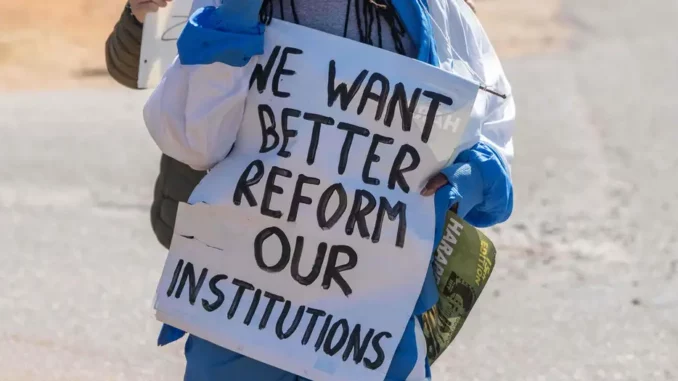
The 16-nation Southern African Development Community’s (SADC) 44th ordinary summit is taking place in Zimbabwe’s capital Harare this weekend, seeking to prioritize an economic growth agenda for the region, but the bleak human rights record of the host nation has overshadowed the talks.
With Zimbabwean President Emmerson Mnangagwa as the chair of the bloc’s meeting, talks among the SADC heads of state and government have focused on how to ensure more innovation, economic integration, and regional stability. The bloc’s major goals are reducing poverty, improving the standard of living for the people in the region, promoting economic development, peace, security, and growth, and assisting the socially disadvantaged through regional integration. Taking place under the theme “Promoting Innovation to Unlock Opportunities for Sustained Economic Growth and Development Towards an Industrialized SADC,” the meeting was, however, overshadowed by reports about Mnangagwa regime’s human rights violations and a crackdown on his political opponents.
Zimbabwe’s authorities cracked down on pro-democracy activists and opposition members and police flooded Harare’s streets in anticipation of protests weeks before the SADS summit. Amnesty International has reported that about 160 people have been arrested since June, with their lawyers saying that they have been hit by police officials during arrests and psychologically tortured in detention. The Office of the United Nations High Commissioner for Human Rights (OHCHR) has called for the immediate release of three human rights defenders, who have been detained for two weeks and “reportedly subjected to enforced disappearance, torture and other cruel, inhuman or degrading treatment or punishment.” Overall, the SADC is seen as having done very little to tackle human rights violations within the bloc, with several other members, including Tanzania and Angola, having also faced recent backlash for rights violations.
